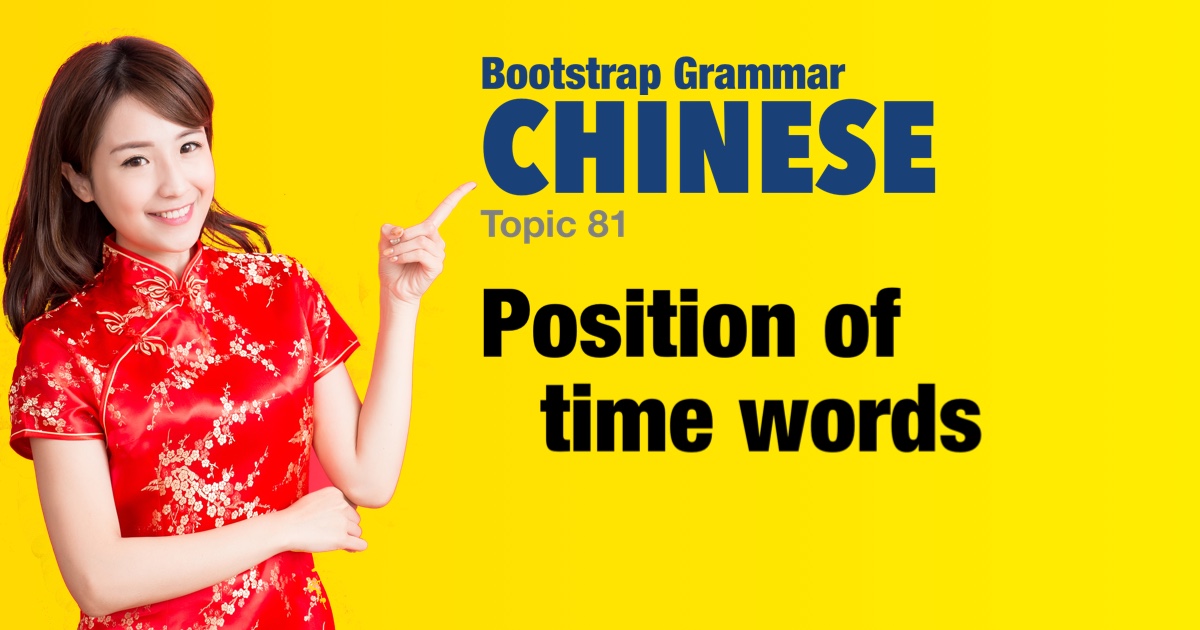Chinese grammar - Position of time words |
|||
|
|||
The most common placement for time words in Chinese is directly after the subject but before the verb. The pattern is: [subject] + [time word] + [verb] + [object]. Time words such as 昨天 (zuótiān) meaning 'yesterday' and 上个星期 (shàng ge xīngqī) meaning 'last week' |
| Examples: | |
|
我今天去上班。
wǒ jīntiān qù shàngbān. I am going to work today. |
|
|
我们这个星期学习新课程。
wǒmen zhè ge xīngqī xuéxí xīn kèchéng. We are studying a new lesson this week.
|
|
|
他今年毕业。
tā jīnnián bìyè. He is graduating this year.
|
|
|
我们今晚看电影。
wǒmen jīnwǎn kàn diànyǐng. We are watching a movie tonight.
|
|
|
他这周每天运动。
tā zhè zhōu měitiān yùndòng. He exercises every day this week. |
|
|
你今天吃早饭了吗?
nǐ jīntiān chī zǎofàn le ma? Did you eat breakfast today?
|
|
|
我们今晚开会。
wǒmen jīnwǎn kāi huì. We are having a meeting tonight. |
|
|
她今年学中文。
tā jīnnián xué zhōngwén. She is learning Chinese this year. |
|
|
他们今天去商店。
tāmen jīntiān qù shāngdiàn. They are going to the store today. |
|
|
我昨天去公园了。
wǒ zuótiān qù gōngyuán le. Yesterday I went to the park.
|
|
|
她上个星期看了电影。
tā shànggexīngqī kàn le diànyǐng. She watched a movie last week.
|
|
|
他们去年去了中国。
tāmen qùnián qù le zhōngguó. They went to China last year.
|
|
|
我前天买了书。
wǒ qiántiān mǎi le shū. I bought books the day before yesterday.
|
|
|
我们上个月参观了博物馆。
wǒmen shàng ge yuè cānguān le bówùguǎn. We visited the museum last month.
|
|
|
他刚才吃了早餐。
tā gāngcái chī le zǎocān. He just ate breakfast.
|
|
|
我以前学了中文。
wǒ yǐqián xué le zhōngwén. I studied Chinese before.
|
|
 |
|



 Competed action so
Competed action so 